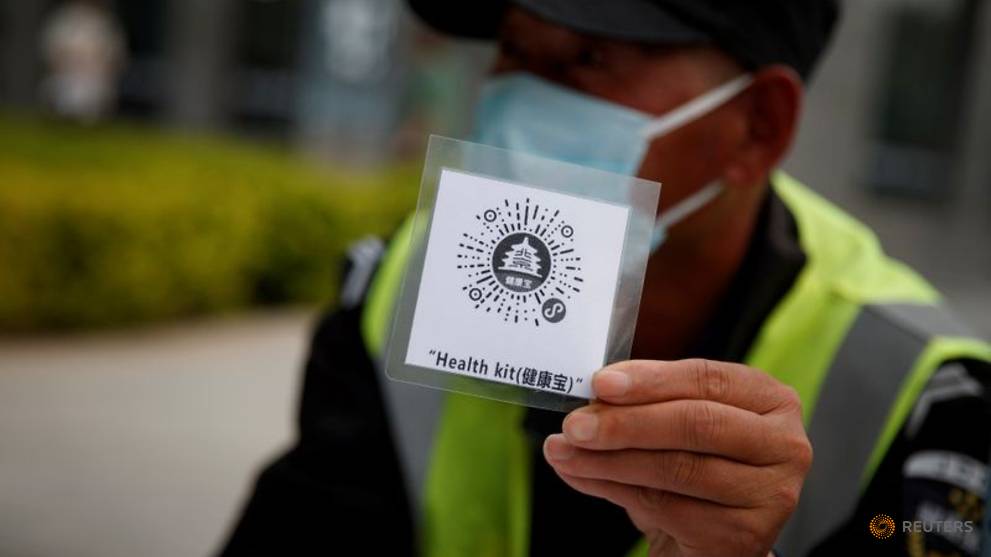
SHANGHAI: China's health tracking QR codes, which have played a key part in the country's successful containment of the coronavirus, now look set to play a much broader role in daily life as local authorities dream up new uses for the technology.
Embedded in the popular WeChat and Alipay smartphone apps, the codes use self-reported and automatically collected travel and medical data to give people a red, yellow or green rating indicating the likelihood of having the virus.
Advertisement
Advertisement
To walk around freely, people in China must have a green rating and since February they have been asked to present their health QR codes to gain entry into restaurants, parks and other venues.
READ: Green or red light: China COVID-19 app is ticket to everywhere
READ: China's coronavirus campaign offers glimpse into surveillance system
The codes had so far met with little public resistance, seen as a necessary tool to get the economy back up on its feet again.
Advertisement
Advertisement
Or that was the case until the eastern city of Hangzhou proposed on Friday permanently assigning each of its residents a coloured health badge and giving them a score from 0-100 based on their medical records and lifestyle habits.
Images published by Hangzhou's health authority showed people would be rated on how much they exercised, their eating and drinking habits, whether they smoked and even how much they slept the night before.
That was seen as far too invasive, setting off a fire storm of criticism from thousands of users on Twitter-like Weibo and fuelling debate about privacy and data security – a debate that comes just as China is poised to enshrine individuals' rights to privacy and personal data for the first time as part of the country's first civil code.
"My physical health is private, why would you want to collect information and build a leaderboard?" said one commentator on Weibo in reaction to the Hangzhou proposal.
READ: How smartphone apps can help with contact tracing
Online personal data is easily bought and sold in China and the likelihood of personal information being hacked was also a major concern.
"Why would it be my company's business if I'm seeing a doctor?" said another commentator.
Ma Ce, a lawyer based in Hangzhou who tracks policy law, said users had the right to demand that data collected to prevent the spread of the coronavirus be destroyed once the crisis is over due to the risk of it being leaked out.
Other local authorities, while excited by the potential to expand use of the health codes, have not gone as far as Hangzhou.
The southern city of Guangzhou has expanded its health code platform to include services that help residents book online consultations with local hospitals and buy face masks. Fujian province has said it wants to expand its QR codes to encompass medical treatment and drug purchases.
Whether Hangzhou is successful in its proposal and just how much privacy people in China will have post-pandemic areRead More – Source
[contf]
[contfnew]
channel news asia
[contfnewc]
[contfnewc]






